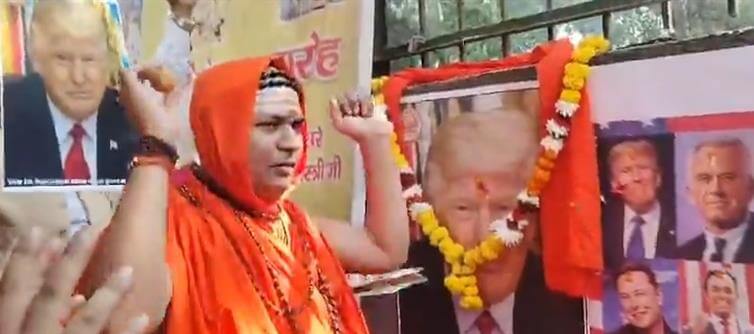
However, fast forward to recent days, and the tone has shifted dramatically. Trump’s critical remarks about India’s economy — where he allegedly called it a "dead economy" — have infuriated the very devotees who once prayed for his victory. Instead of introspecting on the underlying issues or Trump’s motivations, many of these supporters have now turned the blame toward historical figures like Jawaharlal Nehru, accusing him of laying the foundation for today’s problems. This deflection has only exposed the opportunistic and selective reasoning of a segment of the right-wing base, who seem unable to hold their chosen leaders accountable, whether domestic or foreign.
Netizens were quick to call out this hypocrisy, sparking a wave of trolling and memes across social media. One biting comment that stood out read, “Sanghis always support a wrong person & end up blaming Nehru for their mistake.” It summed up the growing frustration with what critics describe as a pattern of misplaced loyalty followed by historical scapegoating. The incident reflects a deeper issue in the current political culture — where ideological bias often overrides rational assessment, and blame is conveniently shifted rather than responsibilities owned.




 click and follow Indiaherald WhatsApp channel
click and follow Indiaherald WhatsApp channel